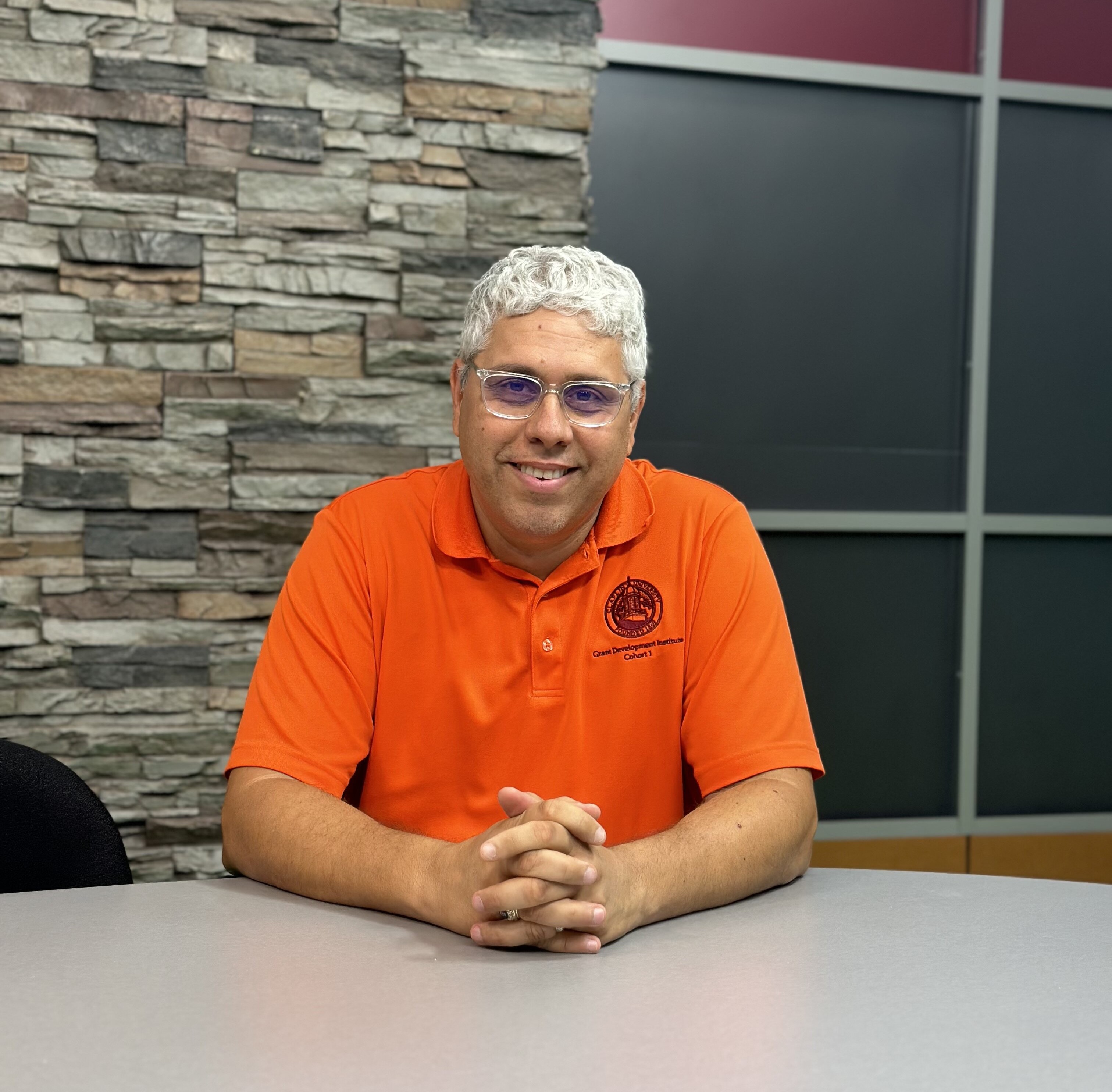Hacking, judo, golf: a professor’s journey into communications
By: DAMAIA DAVIS
Oct 13, 2024

Dr. Luis Almeida
Most students would not picture hacking, judo or golf when it comes to their professors, but nothing was too unusual in the life of Claflin University mass communications professor Luis Almeida.
Almeida earned awards as a top HBCU educator in both 2022 and 2023. He can often be seen interacting with students on campus or parsing their work on social media; however, a career in education could not be further from his original path.
Born to a wealthy father and a poor mother in Brazil, Almeida’s life was already off to an “unusual” start.
“My dad comes from a very wealthy family in Brazil with all the resources that you can imagine; my mom comes from a vey poor family in Brazil,” Almeida said. “That is not typical in Brazilian culture.”
His father’s status opened a world of opportunity for him. As a child, he gained a technology-based education, learning basic coding language by 11.
“He put me into a school that was ahead of its time, where I learned how to program in basic by the age of 11,” Almeida said. “Back then we didn't have the internet.”
Video game culture was on the rise in Rio de Janeiro and, as with many other children, Almeida’s interest was sparked. He and his classmates would meet not only to play but to hack the games.
“We were in the same classroom learning how to program in basic. We're creating graphics and then we learn how to crack software. I guess a good way to say it's like old school hacking,” Almeida said. “So we would then crack the software to be able to get the video games.”
Though he gamed for fun and practiced judo for discipline, he shined most on the golf course. He started golfing at age 9 and learned from greats like Mário Gonzalez, the father of Brazilian golf.
Almeida showed great promise, taking home many wins in the Brazilian junior divisions. By 17, he was well on his way to a spot on the Brazilian national team.
“I played for the Brazilian national team once, one time,” Almeida said. “I was an alternate in the second year."
He shared this dream of professional golf with his father. However, his dedication to the sport had overshadowed his studies.
“I played golf, I played video games, and I was fighting, but I didn't study,” Almeida said. “So, by the age of 18, I was in 10th grade. So I was not a high school graduate.”
Being 18 years old, he was required to join the Brazilian army, putting a pause on his golf career and his education. He served in the police of the army.
“I grew up in dictatorship,” Almeida said. “The battalion that I got accepted at was the battalion that used to be used for torture.”
After finishing his service and graduating high school at 20, Almeida continued with competitive golf while teaching at his parents’ country club. By 24, he was no longer able to depend on them and could not afford a membership on his own.
Encouraged by his father, Almeida came to the United States speaking only Spanish and Portuguese. He struggled to find a university that covered both academic and athletic needs.
He eventually enrolled in Slippery Rock University in Pennsylvania for the 1999 spring semester, studying sports management. Golf at Slippery Rock did not bring him enough funds, so he turned to the international office.
“The international office was giving international students about 80% scholarship to diversify the campus,” Almeida said. “So then I decided to join the international office and they said you have to maintain a high GPA, and every year you have to cook your food of your country, and you have to also play music.”
For four years, Almeida played the guitar to pay for his degree. Golf slowly faded into the background.
“So I played golf over the summer because I had the time,” Almeida said. “And then over the academic year, I'll be playing a guitar because it would pay the tuition.”
With little luck finding a position in coaching, Almeida decided to go back to school to study for a mass communications master’s degree. He already had prior experience designing graphics and had been getting into photography.
“I said ‘I want to study communication,’” Almeida said, “I want to do this.”
Unsure at first, Almeida pursued a doctoral degree at Penn State University with encouragement from his professor. One conference was the bridge between Almeida, who dreamed of professional golf, and Almeida the awarded professor.